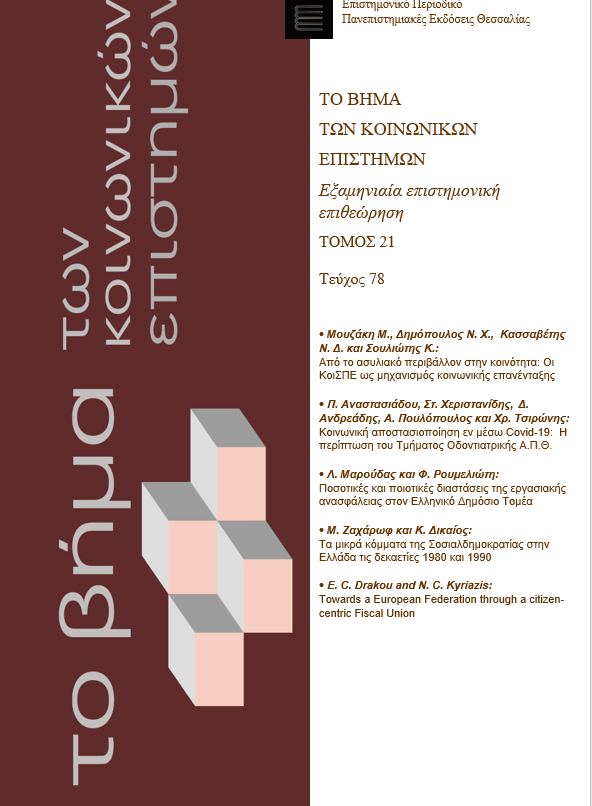Towards a European Federation through a Citizen-Centric Fiscal Union
DOI:
https://doi.org/10.26253/heal.uth.ojs.sst.2023.1990Λέξεις-κλειδιά:
European Union, Fiscal Federalism, Institutional Innovation, Social Entrepreneurship, Development PathwaysΠερίληψη
Drawing concepts from different economic and political academic fields and combining them in a common theoretical background, a synthesis of a single theoretical framework is attempted from which to derive a conceptual model of fiscal policy for the political integration of the EU in the form of a federation. After reporting the shortcomings in the design of the European architecture and critically analyzing the neoclassical economic theory on which it was based, the emphasis is placed on institutional economics for highlighting growth fiscal strategies, from which key drivers of economic and social productivity are revealed to be entrepreneurship, endless innovation, the economy of knowledge and processes of creative destruction, all integrated within the framework of an innovation system. A supranational system of innovation is argued to stand as the fundamental evolutionary pillar for economic and social development, through a network of decentralized structures of taxation and fiscal autonomy. The above findings are expressed through a model of ‘citizen-centric’ fiscal union policy, assessed as the most appropriate way to EU federalization.

